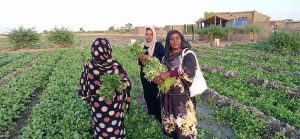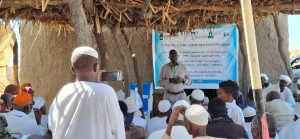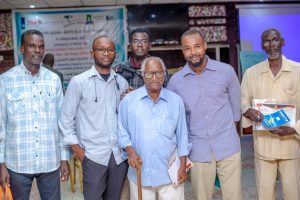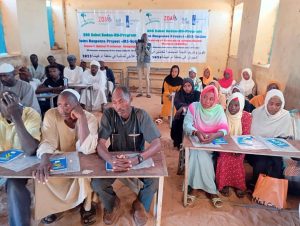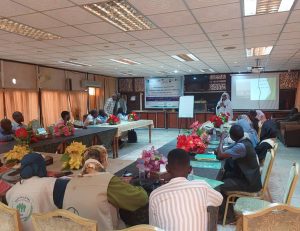SEADS Takes Shape After Global Public Consultation
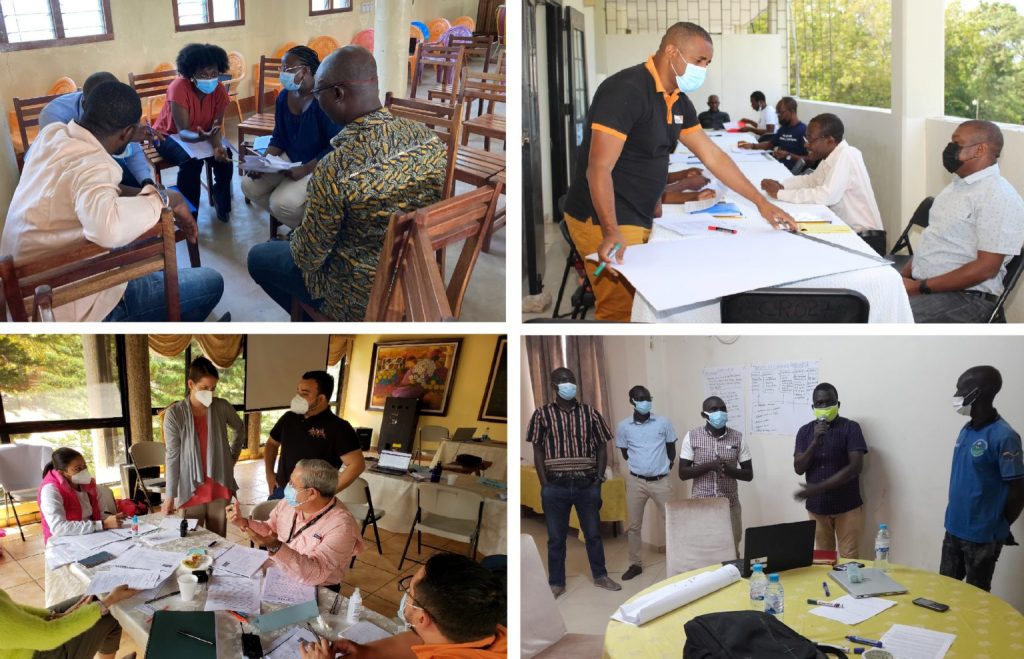
We know you are as keen as we are to see the first edition of the SEADS Handbook. It will be published later this year. In the meantime, we’re excited to share the progress we’ve made and some of the lessons we’ve learned through the global public consultation.
To be inclusive and effective, humanitarian standards (like regulations) need to be developed through open and transparent processes (OECD, Background Document on Regulatory Reform in OECD Countries). These inevitably take longer than closed and opaque processes. The SEADS process is allowing us to pool knowledge from around the world, analyze that knowledge, and integrate it into the draft Handbook. We are confident that this process will result in a strong first edition that will be immediately useful to people who want their emergency crop programs to have positive impacts on people livelihoods.
Since SEADS began in 2020, we have invited participation in a variety of ways, including
- Setting up the SEADS Steering Group, which represents a variety of potential users and seeks input and feedback from their organizations.
- Working with Field Team members to gather the perspectives of practitioners, government, and affected crop producers in emergency contexts. (Check out this info if you’re interested in joining the Field Team.)
- Engaging with Humanitarian Standards Partnership members, who have been through these processes before, to learn from their experiences.
- Running a global campaign to gather evidence that we reviewed, categorized, and used to draft the Handbook. Our Learning Brief describes the process and results of the evidence review.
In early 2022 we conducted our widest-ranging effort to date: a global public consultation.
How did SEADS hold the public consultation?
The SEADS public consultation had two parts:
- An online platform (Interactive Handbook) on which people could review and submit comments on the draft Handbook
- A series of simulation events in which future users of SEADS tested the draft Handbook by using it for a realistic yet fictional scenario.
Who participated in the public consultation?
We kicked off the public consultation with a webinar in January 2022 with 124 people from 36 countries attending. Many more watched the recording.
Then, over three weeks in January and February 2022, 87 people created accounts on the Interactive Handbook and nearly half of them logged a comment.
From December 2021 through February 2022, we organized four two-day simulation events. A total of 62 people participated from international and national NGOs, UN agencies, government agencies, and academic and research institutes in:
- Central African Republic, hosted by Catholic Relief Services
- South Sudan, hosted by World Vision and the Food Security and Livelihoods Cluster
- Haiti, hosted by American University of the Caribbean
- Honduras, hosted by World Vision and the Food Security and Livelihoods Cluster.
Through the online platform and simulation, people in 34 countries participated in the public consultation:
- Africa: Cameroon, Central African Republic, Cote d’Ivoire, Democratic Republic of the Congo, Ethiopia, Kenya, Senegal, Somalia, South Sudan, Sudan, Zimbabwe
- Europe: Belgium, Denmark, Germany, Ireland, Italy, Norway, Portugal, Spain, Switzerland, United Kingdom
- Latin America and Caribbean: Bolivia, Colombia, Guatemala, Haiti, Honduras, Peru
- North America: United States, Canada
- Asia: India, Jordan, Palestine, Syrian Arab Republic, United Arab Emirates
Based on self-assigned expertise data, we received input from people with a variety of expertise, including humanitarian, development, agriculture, food security, livelihoods, and markets.
What kind of feedback did we receive through the public consultation?
When the consultation closed, participants had logged more than 1,200 comments.
The majority of these comments related to the following themes:
- Terminology: improving the clarity of content
- Graphics: improving the content and usability of the graphics
- Alignment: improving the alignment between chapters and/or with other standards and guidelines
- Structure: re-organizing the handbook to improve usability
- Application: revisiting how information in the book fits with the reality of emergency programming
- Silo: considering crops and crisis issues more holistically
- Development: strengthening links with concepts and guidance for development work
What will SEADS do with the feedback from the public consultation?
The SEADS Steering Group reviewed the feedback during its March 2022 meeting and agreed to respond in three broad ways to make the Handbook easier for practitioners to use during a crisis.
- Edit all chapters so they are clearer and more concise, narrowing the focusing to the most critical crop-related elements.
- Replace the core standards and guiding principles with a single set of guiding principles that relate more directly to crop-related crisis response.
- Restructure the Handbook so that it aligns more closely with the process of designing, implementing, and evaluating a response.
As our Steering Group Chair, Andy Catley noted, “We have a lot of feedback and addressing it will result in a much better version.”
It will take us a few months to do the rewriting and restructuring that is needed to deliver the best possible first edition of SEADS to you before the end of 2022.
A word of thanks
Developing the SEADS Standards to support crop-related crisis response is truly a collaborative effort and we would like to thank many people, including:
- Tristan Hale from Sphere and the team at River Valley Technologies for ensuring the technology for the public consultation was easy to use.
- Our field teams in Gaza, Nepal, and South Sudan for gathering the perspectives of local actors and small-holders affected by crises.
- The people who organized the simulation events that gave us local perspectives in a variety of contexts, in particular, Lainey Heyl of Catholic Relief Services in Central African Republic; Ludger Jean Simon, Willina Ambroise, and the events team of the American University of the Caribbean in Haiti; Rosa Escolan and Hernan Alfonso Aguilar of World Vision in Honduras; and Isaac Jebaseelan and Heidi Dessecker of World Vision and Alistair Short of the World Food Program in South Sudan. Your efforts resulted in invaluable feedback, particularly related to the usability of the draft Handbook.
- The 87 people who reviewed our Handbook though the online platform, especially the individuals who left a significant number of comments.
- Kate Murphy, our editor, for all your help digesting the feedback and determining the right revisions to make, and for all the work you are now undertaking to revise the Handbook.
- The Steering Group, for your careful consideration of all the feedback, and for your guidance for how to act on the feedback to make SEADS as good as it can be.
